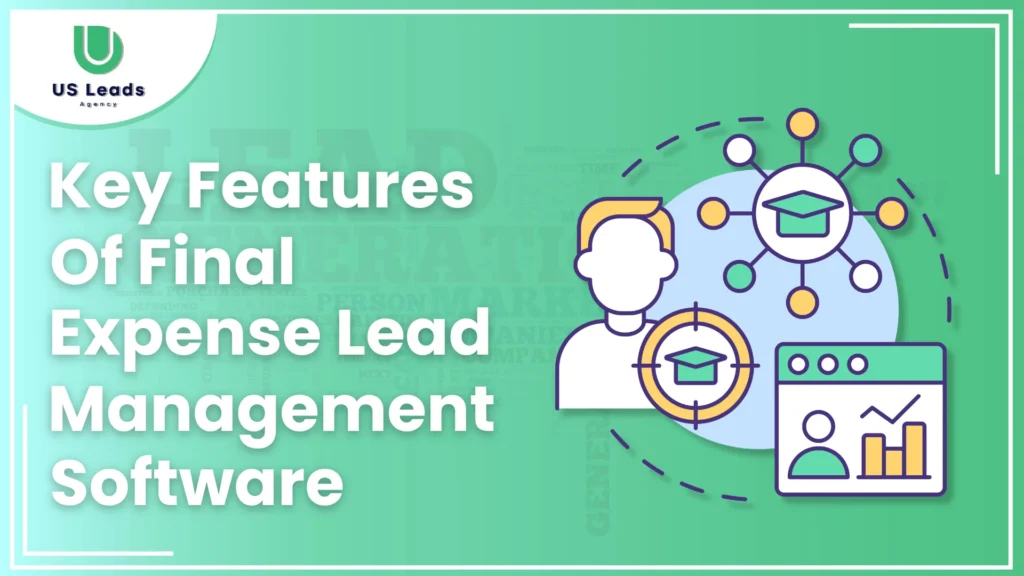
Final expense insurance demands precision, efficiency, and a well-structured approach to lead management. The right Final Expense Lead Management Software can transform your operations, boosting sales and optimizing lead handling. With countless options available, identifying the right features can be challenging.
This guide highlights the top features to look for when choosing software to elevate your agency’s performance and improve lead conversions.
Key Takeaways:
- Lead Tracking & Analytics: Enable data-driven decisions and improved conversions.
- Automation Tools: Save time and focus on client relationships.
- Mobile & Compliance Features: Essential for modern lead management.
- Scalability: Ensures your software adapts to your growing business.
- Cost-Effectiveness: Free trials and clear pricing prevent overspending.
Table of Contents
What is Final Expense Lead Management?
Final Expense Lead Management refers to the process of organizing, nurturing, and converting leads interested in purchasing final expense insurance. This insurance covers end-of-life costs like funeral expenses or medical bills.
Why It Matters?
- Ensures efficient tracking and follow-ups.
- Improves conversion rates by guiding leads through the sales funnel.
- Supports agents in building lasting client relationships.
Top Features To Prioritize in Lead Management Software:
1. Comprehensive Lead Tracking:
Effective tracking ensures no leads are overlooked. Look for software that:
- Tracks real-time updates on lead status.
- Records interactions and follow-ups.
- Provides detailed conversion insights.
This helps agents prioritize high-potential prospects and close deals efficiently.
2. Advanced Analytics and Reporting:
Data-driven insights are crucial for strategy optimization. Your software should offer:
- Dashboards showcasing key performance indicators (KPIs).
- Reports on agent performance and lead sources.
- Predictive analytics to identify trends and opportunities.
Analytics empower agencies to make informed decisions and maximize ROI.
3. Seamless Integration with Lead Sources:
Integration eliminates errors and saves time. Ensure the software:
- Syncs with CRM systems for unified customer data.
- Imports leads from websites, call centers, and purchased lists.
- Updates leads in real-time for immediate action.
This ensures all leads are organized and actionable.
4. Automation Tools:
Automation reduces manual work, letting agents focus on relationships. Key features include:
- Lead assignments based on criteria like location or expertise.
- Automated drip email and SMS campaigns.
- Scheduling tools for follow-ups and reminders.
Automation increases efficiency and ensures consistent client engagement.
5. Mobile Accessibility:
Flexibility is vital for agents working remotely. Opt for software offering:
- Fully functional mobile apps.
- Cloud-based access for on-the-go data availability.
- Offline capabilities for uninterrupted work.
Agents can respond quickly to leads, even from the field.
6. Compliance Management:
Compliance is critical in the regulated insurance industry. Look for features like:
- Call recording to meet legal requirements.
- Automatic updates to Do-Not-Call lists.
- Secure storage for client data.
These features reduce legal risks and protect your agency’s reputation.
7. User-Friendly Interface:
A user-friendly design ensures quick adoption and effective use. Prioritize software with:
- Intuitive navigation and task management.
- Minimal training requirements.
- Easy access to critical functions.
This ensures agents can work efficiently without steep learning curves.
8. Scalability and Customization:
Your software should grow with your agency. Look for:
- Customizable fields and workflows.
- Scalability to handle higher lead volumes.
- Options for feature upgrades as needed.
Scalable software ensures long-term value.
9. Integration With Communication Tools:
Efficient communication is key. Your software should support:
- Built-in calling features.
- SMS and email templates.
- VoIP integration for seamless client engagement.
These tools improve response times and client satisfaction.
10. Cost-Effectiveness:
Ensure your software balances features with affordability. Consider:
- Transparent pricing with no hidden fees.
- Free trials or demos to test functionality.
- Plans that fit your budget and long-term needs.
Investing in cost-effective software leads to better efficiency and savings.
Conclusion – Final Expense Lead Management Software:
Choosing the right Final Expense Lead Management Software is vital for boosting efficiency and lead conversions. Look for features like lead tracking, automation, analytics, and compliance to enhance operations. Scalable, user-friendly software helps agencies focus on client relationships and long-term growth.
FAQs:
Why is lead tracking important in this software?
Lead tracking prevents overlooked opportunities and helps agents prioritize high-potential prospects.
Can this software integrate with other tools?
Yes, most lead management systems integrate with CRMs, communication tools, and lead sources.
How do I determine the cost-effectiveness of the software?
Test free trials, compare pricing plans, and check for hidden fees.
How can I test the software before purchasing?
Most providers offer free trials or demos to explore functionality and features.
